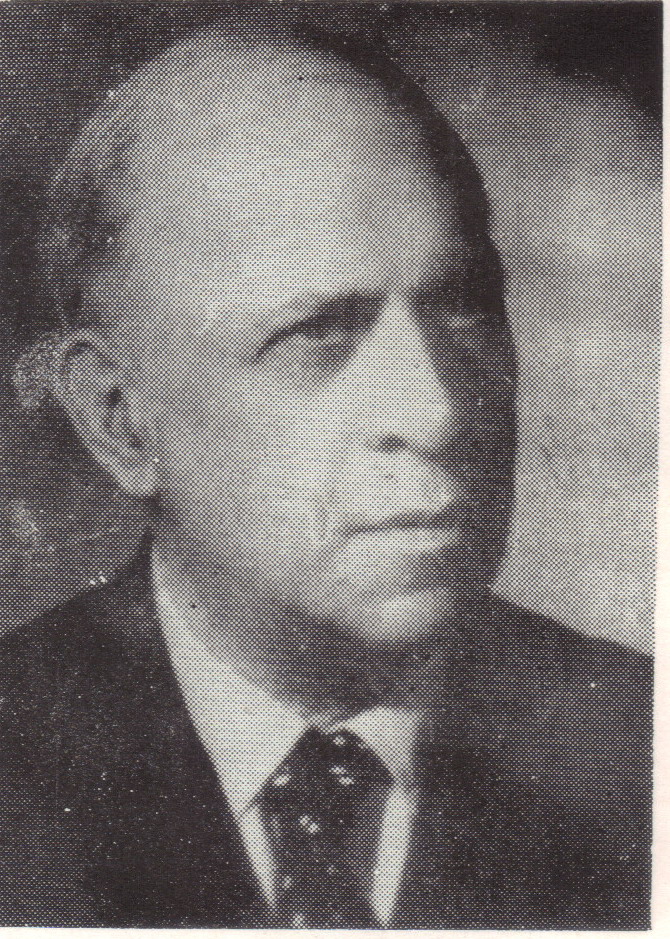|
Gheorghe Zane University
The Gheorghe Zane University was a private university in Iaşi, Romania. Founded in 1996, it was named in honor of the Romanian economist Gheorghe Zane. In September 2013, Gheorghe Zane University was absorbed into Petre Andrei University of Iași. Structure Faculties * Faculty of Marketing * Faculty of Management * Faculty of Public AdministrationReferences External links Official site |
Petre Andrei University Of Iași
The Petre Andrei University of Iași is a private university in Iași, Romania, founded in 1990. It was named in honor of the Romanian philosopher Petre Andrei Petre Andrei (June 29, 1891 – October 4, 1940) was a Romanian sociologist, philosopher and politician. Biography Origins and work Born in Brăila into a family of low-ranking civil servants, Andrei attended Nicolae Bălcescu High School from .... In September 2013, Petre Andrei University absorbed Gheorghe Zane University. Structure Faculties * Faculty of Law * Faculty of Economics * Faculty of Psychology and Educational Sciences * Faculty of Social Work and Sociology * Faculty of P ...[...More Info...] [...Related Items...] OR: [Wikipedia] [Google] [Baidu] |
Romania
Romania ( ; ro, România ) is a country located at the crossroads of Central, Eastern, and Southeastern Europe. It borders Bulgaria to the south, Ukraine to the north, Hungary to the west, Serbia to the southwest, Moldova to the east, and the Black Sea to the southeast. It has a predominantly temperate- continental climate, and an area of , with a population of around 19 million. Romania is the twelfth-largest country in Europe and the sixth-most populous member state of the European Union. Its capital and largest city is Bucharest, followed by Iași, Cluj-Napoca, Timișoara, Constanța, Craiova, Brașov, and Galați. The Danube, Europe's second-longest river, rises in Germany's Black Forest and flows in a southeasterly direction for , before emptying into Romania's Danube Delta. The Carpathian Mountains, which cross Romania from the north to the southwest, include Moldoveanu Peak, at an altitude of . Settlement in what is now Romania began in the Lower Pale ... [...More Info...] [...Related Items...] OR: [Wikipedia] [Google] [Baidu] |
Economist
An economist is a professional and practitioner in the social science discipline of economics. The individual may also study, develop, and apply theories and concepts from economics and write about economic policy. Within this field there are many sub-fields, ranging from the broad philosophical theories to the focused study of minutiae within specific markets, macroeconomic analysis, microeconomic analysis or financial statement analysis, involving analytical methods and tools such as econometrics, statistics, economics computational models, financial economics, mathematical finance and mathematical economics. Professions Economists work in many fields including academia, government and in the private sector, where they may also "study data and statistics in order to spot trends in economic activity, economic confidence levels, and consumer attitudes. They assess this information using advanced methods in statistical analysis, mathematics, computer programming n ... [...More Info...] [...Related Items...] OR: [Wikipedia] [Google] [Baidu] |
Gheorghe Zane
Gheorghe Zane (April 11, 1897 – May 22, 1978) was a Romanian economist and historian. Born in Galați, he attended Vasile Alecsandri National College before enrolling in the law faculty of the University of Iași. He graduated from that institution in 1920, earning a doctorate from the University of Bucharest in 1923. His first teaching job, from 1921 to 1924, was at the agriculture faculty in Iași, where his courses dealt with political economy.Gheorghe Zane at the Galați V. A. Urechia Library site Securing a post as associate professor in the same subject at the Iași law faculty in 1924, he advanced to full professor in 1929, teaching the history of economic doctrines. The following year, he switched to teaching political economy and finance, continuing to do so until 1945. From 1945 to 1948, he taught political ... [...More Info...] [...Related Items...] OR: [Wikipedia] [Google] [Baidu] |
Universities In Iași
A university () is an institution of higher (or tertiary) education and research which awards academic degrees in several academic disciplines. ''University'' is derived from the Latin phrase ''universitas magistrorum et scholarium'', which roughly means "community of teachers and scholars". Universities typically offer both undergraduate and postgraduate programs. The first universities in Europe were established by Catholic Church monks. The University of Bologna (), Italy, which was founded in 1088, is the first university in the sense of: *being a high degree-awarding institute. *using the word ''universitas'' (which was coined at its foundation). *having independence from the ecclesiastic schools and issuing secular as well as non-secular degrees (with teaching conducted by both clergy and non-clergy): grammar, rhetoric, logic, theology, canon law, notarial law.Hunt Janin: "The university in medieval life, 1179–1499", McFarland, 2008, , p. 55f.de Ridder-Symoens ... [...More Info...] [...Related Items...] OR: [Wikipedia] [Google] [Baidu] |
Educational Institutions Established In 1996
Education is a purposeful activity directed at achieving certain aims, such as transmitting knowledge or fostering skills and character traits. These aims may include the development of understanding, rationality, kindness, and honesty. Various researchers emphasize the role of critical thinking in order to distinguish education from indoctrination. Some theorists require that education results in an improvement of the student while others prefer a value-neutral definition of the term. In a slightly different sense, education may also refer, not to the process, but to the product of this process: the mental states and dispositions possessed by educated people. Education originated as the transmission of cultural heritage from one generation to the next. Today, educational goals increasingly encompass new ideas such as the liberation of learners, skills needed for modern society, empathy, and complex vocational skills. Types of education are commonly divided into formal, ... [...More Info...] [...Related Items...] OR: [Wikipedia] [Google] [Baidu] |



